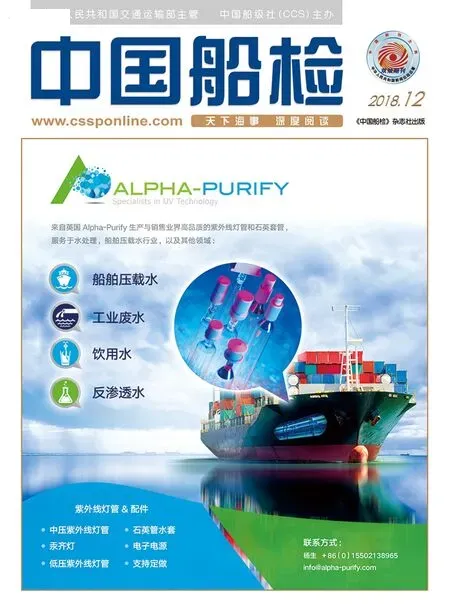US sanctions on Iran - the impact on shipping and shipbuilding industry
By Tan Song

Tan Song
China Shipbuilding Industry Corporation Economic Research Center Tan Song vice chief economist
Since the US has reimposed the second round of sanctions on Iran recently, what kind of impact do they have on shipping and shipbuilding industry?
The US sanctions on Iran brought a temporary decline on fl eet capacity, which thereby could bene fi t the shipping industry. As sanctions on Iran have come into effect on November 5, 2018, part of Iran’s fleet was reportedly restricted. Iran’s fleet of crude oil tankers accounts for 3.5% in the world, including 38 VLCC, representing 5.2% of the global capacity. During the last round of sanctions, the tanker capacity of National Iranian Tanker Company has partly withdrawn from the shipping market, mainly tied up in floating storage. There is a general recognition in the industry that the activity of VLCC capacity of National Iranian Tanker Company may slump during the current sanctions, or partly switch to offshore oil storage, reducing the effective capacity supply for the industry. This point of view was proved by the fact that the daily earnings of VLCC in the second week of November, 2018 has fallen to 42,000 USD/day, which of course was also affected by the production growth in countries like Saudi Arabia and the drop in oil price. Besides, the proportion of Iran’s fl eet of container ships and bulk carriers is smaller than that of tankers in the global fl eet, and therefore has limited bene fi ts to other sections of the shipping industry.
The disruption of Iran’s fleet renewal and expansion program would hurt the newbuilding market. The Islamic Republic of Iran Shipping Lines (IRISL) and the National Iranian Oil Company have been preparing for increasing their market share once again since they were removed from the “black list” in 2016. They placed orders for four 14,500 TEU container ships and six 49,000-ton MR product tankers at Hyundai Heavy Industries in December, 2016. It was reported that the IRISL planned to invest 2.5 billion US dollars in fl eet renewal program,and the National Iranian Tanker Company (NITC) also considered fl eet expansion, with orders of three VLCCs and two MR product tankers with a total value of over 0.3 billion US dollars. After the second set of US sanctions against Iran, Korean shipyards could no longer build new ships for the country, and Iranian shipowners would not be able to afford newbuildings for a while as their fi nancial resources were signi fi cantly affected, so Korea and China, who once counted on Iran, would lose a major client. Although sanctions on Iran have benefits to the shipping industry, it is dif fi cult to pass them on to the newbuilding sector, and the temporally less active Iranian fleet may be put back into the market after the restrictions were eased.
China-US trade tensions are escalating currently, and the APEC summit has failed to release a joint declaration for the fi rst time due to the deepening disagreement between China and the US. According to the US sanctions on Iran,trading with Iran’s business partners who were added to the US’s sanction list will be punished as well, even if not trading with Iran directly. As the US has bigger discretion on Iran sanction, Chinese enterprises are very likely to be watched with microscope by the relevant authorities of the US. Before China introduces specific policy responses or the situation gets clear, business operators should understand the content of US sanctions on Iran, establish clients fi ltering systems, and try their best to avoid US sanctions.

